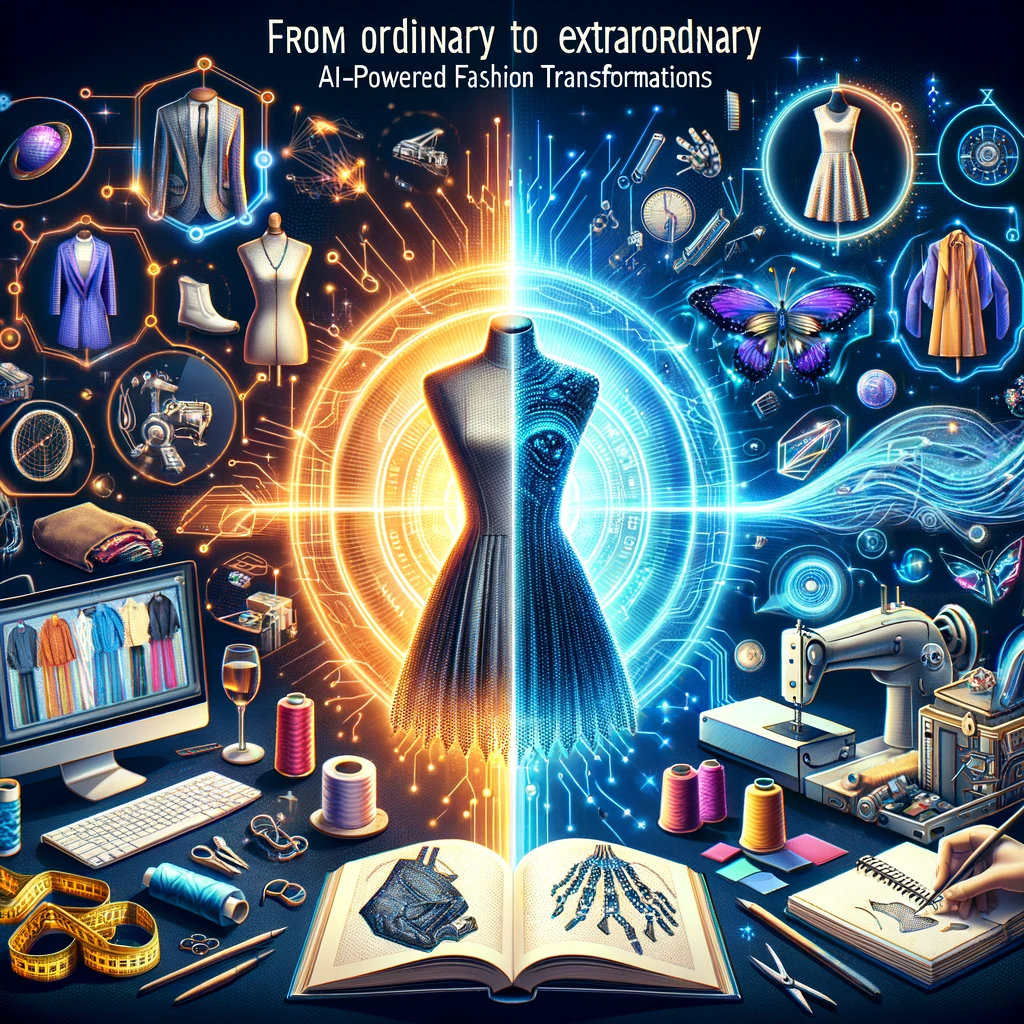In the ever-evolving world of fashion, the integration of artificial intelligence (AI) has marked a revolutionary shift, transforming the ordinary into the extraordinary. This article delves into how AI has become an indispensable tool in the fashion industry, reshaping everything from design and production to personalisation and sustainability.
The Dawn of AI in Fashion
The journey of AI in fashion began with experimental applications, but it has quickly become a core component in the industry. AI’s ability to analyze vast amounts of data, including consumer preferences, current trends, and sales statistics, has made it an invaluable asset for designers and retailers. This data-driven approach enables brands to not only understand but also predict what consumers desire, leading to more targeted and successful designs.
Revolutionizing Design and Production
AI’s most significant impact in fashion is perhaps in the realms of design and production. Designers are using AI algorithms to create innovative patterns and styles, pushing the boundaries of creativity. These algorithms can analyze historical fashion trends and current preferences to suggest new designs that are both fresh and in-demand.
In production, AI is enhancing efficiency and precision. Automated cutting machines and sewing robots, guided by AI, are increasing the speed of garment production while minimizing waste. AI-driven predictive analytics also assists in inventory management, ensuring that supply meets demand without overproduction, which is a crucial step towards sustainability.
Personalization: The New Frontier
Personalization is where AI truly shines in fashion. AI algorithms are capable of suggesting clothing items to consumers based on their past purchases, searches, and preferences. This level of personalization not only improves the shopping experience but also fosters customer loyalty.
Virtual fitting rooms powered by AI are another innovative feature. These tools allow customers to see how clothes would look on them without physically trying them on, bridging the gap between online and in-store shopping experiences.
AI in Fashion Marketing and Sales
AI is equally transforming fashion marketing and sales strategies. Chatbots and AI-driven recommendation systems provide customers with personalized shopping assistance, enhancing customer service and boosting sales.
In marketing, AI tools analyze consumer data to tailor marketing campaigns, ensuring that the right products are marketed to the right audience. This level of targeted marketing not only increases the effectiveness of advertising campaigns but also enhances customer engagement.
Sustainability and Ethical Fashion
AI is playing a pivotal role in steering the fashion industry towards sustainability. By optimizing supply chains and production processes, AI helps in reducing waste and energy consumption. AI-driven trend forecasting also leads to more sustainable practices by reducing overproduction, a significant issue in the fashion industry.
Moreover, AI is aiding in the development of sustainable materials. By analyzing data on material properties and environmental impacts, AI is helping in creating eco-friendly and sustainable fabrics.
Challenges and Future Directions
While the benefits of AI in fashion are clear, it’s not without challenges. Concerns around data privacy and the ethical use of AI are paramount. Moreover, the high cost of implementing AI technology can be a barrier for smaller brands.
The future of AI in fashion, however, looks bright. Advances in AI technology will further enhance personalization, sustainability, and efficiency in the fashion industry. We can expect to see more AI-driven innovations in fabric creation, wearable technology, and even in how we interact with fashion digitally.
Conclusion
AI’s role in transforming fashion from ordinary to extraordinary is undeniable. Its impact spans the entire spectrum of the industry, from design and production to marketing and sustainability. As AI continues to evolve, it will further revolutionize the fashion industry, making it more efficient, sustainable, and personalized. The fusion of fashion and technology not only opens up new creative avenues but also paves the way for a more sustainable and consumer-centric industry.
In conclusion, AI-powered fashion transformations are not just a fleeting trend but a fundamental shift in how the fashion industry operates. It’s a journey from the ordinary to the extraordinary, with AI at its helm, steering the course towards a more innovative and sustainable future in fashion.
